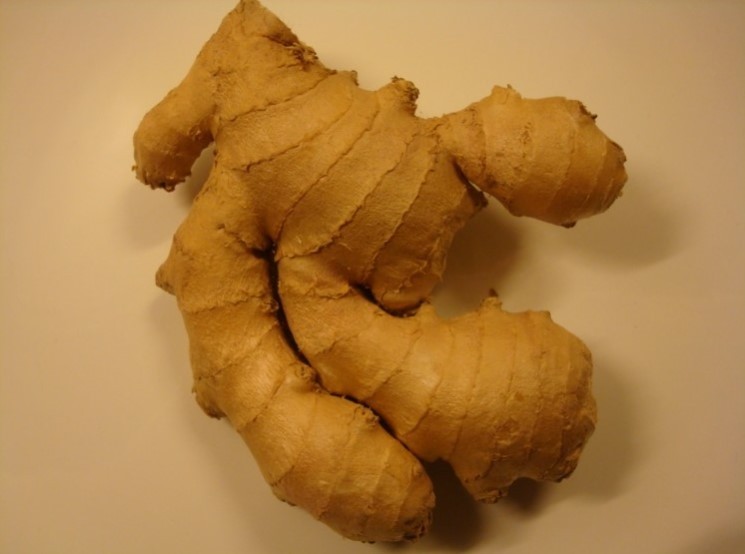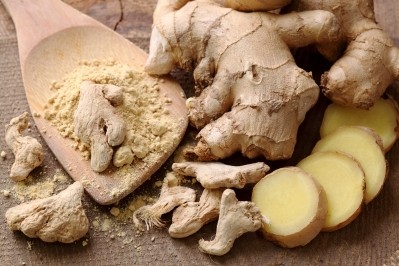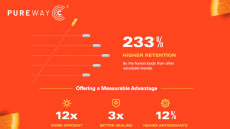Ginger bioactive potency counters autoimmune conditions, study suggests

The University of Michigan team identify 6-gingerol as the active ingredient in the ginger root that may be potent enough to counter the mechanism that determines the onset of conditions like lupus.
Lupus attacks the body's own immune system and its associated with antiphospholipid syndrome, which causes blood clots. Over time, both conditions can cause widespread inflammation and organ damage.
The study, which was carried out in mice with either antiphospholipid syndrome or lupus, found 6-gingerol prevented neutrophil extracellular trap release, which is triggered by the autoantibodies that these diseases produce.
“Neutrophil extracellular traps (NETs), come from white blood cells called neutrophils," says lead author Ramadan Ali "These structures are formed when autoantibodies interact with receptors on the neutrophil's surface.
“We asked, ‘Will the anti-inflammatory properties of ginger extend to neutrophils, and specifically, can this natural medicine stop neutrophils from making NETs that contribute to disease progression?’ This study offers a surprising and exciting, 'yes'."
Ginger’s anti-inflammatory and anti-oxidative properties have been attributed to its richness in phenolic phytochemicals such as gingerols and shogaols.
Of these bioactive compounds, 6-gingerol is the most abundant in fresh ginger, with concentrations up to 2,100 micrograms per gram (µg g-1).
Ginger may mediate its anti-inflammatory effects by reducing levels of pro-inflammatory cytokines, as well as moderating synthesis and secretion of chemokines at sites of inflammation.
6-gingerol treatment
In order to observe how 6-gingerol behaved in neutrophils, male mice were given 10 milligrams per kilogram (mg kg-1) 6-gingerol daily, administered by intraperitoneal injection throughout the duration of the experiment.
Peripheral blood was collected after 0.5, 2, 4, and 24 hours after 6-gingerol treatment. Plasma was collected and neutrophils were isolated from peripheral blood.
To understand how 6-gingerol behaved in lupus-induced animals, female mice were given 20 mg kg-1 three times per week of 6-gingerol, also administered by intraperitoneal injection. Serum and tissues were collected from these mice after six weeks of treatment.
Along with colleagues from the University’s College of Pharmacy, the team discovered that after giving 6-gingerol, the mice had lower levels of NETs, whilst their tendency to make clots was also reduced.
The compound also appeared to inhibit neutrophil enzymes called phosphodiesterases, which reduce neutrophil activation.
Regardless of whether they had antiphospholipid syndrome or lupus, the mice had reduced autoantibodies suggesting the inflammatory cycle, autoantibodies stimulating NETs which stimulate more autoantibodies, was broken.
“As for basically all treatments in our field, one size does not fit all,” says study author and rheumatologist Dr Jason Knight.
“But, I wonder if there is a subgroup of autoimmune patients with hyperactive neutrophils who might benefit from increased intake of 6-gingerol.
“It will be important to study neutrophils before and after treatment so we can determine the subgroup most likely to see benefit."
Study conclusions
In the study’s concluding thoughts, the team noted that 6-gingerol concentrations as low as 10 µM were effective in mitigating NETosis with no cellular toxicity noted over 24 hours.
“In fact, for the duration of our assay (3 hours), we did not detect toxic effects even at molar concentration of 6- gingerol,” they add.
“Ginger extracts are generally regarded as safe with 2 grams daily (approximately 25 mg kg-1), demonstrating low levels of toxicity and high levels of tolerability in humans.”
Also taken into account was the faster metabolic rate of mice compared with humans, where 250 mg kg-1 of ginger extract has been a common dose for murine in vivo studies.
The team agreed that as ginger extracts typically consist of 5% active phenolic compounds (mostly 6-gingerol), the dose chosen in the study (10 mg kg-1 6-gingerol) lined up well with previous work.
"Those that have autoantibodies, but don't have activated disease, may benefit from this treatment if 6-gingerol proves to be a protective agent in humans as it does in mice," Ali adds.
"Patients with active disease take blood thinners, but what if there was also a natural supplement that helped reduce the number of clots they produce? And what if we could decrease their autoantibodies?"
Source: JCI Insight
Published online: doi.org/10.1172/jci.insight.138385
“Anti-neutrophil properties of natural gingerols in models of lupus.”
Authors: Ramadan Ali et al.














